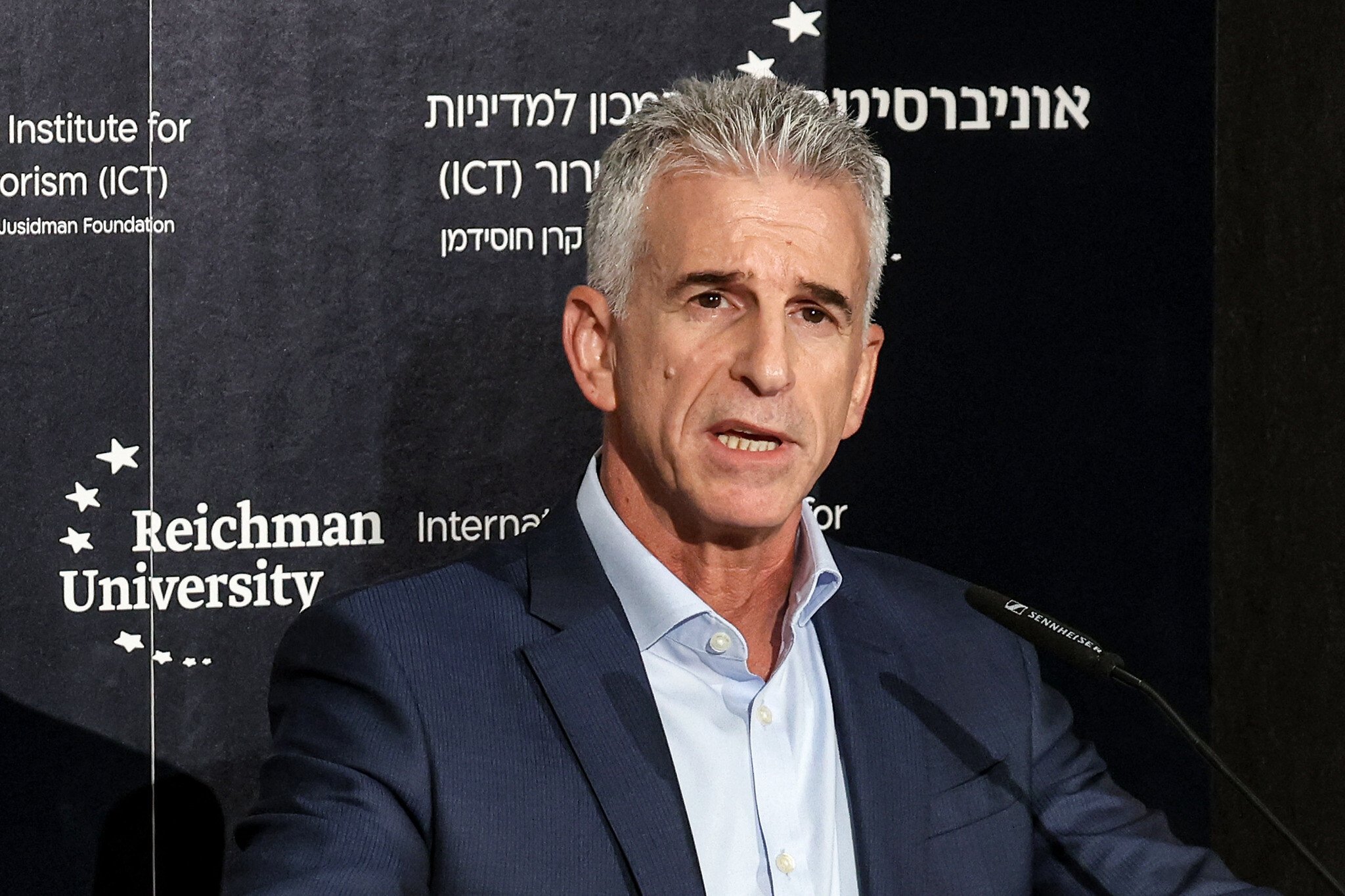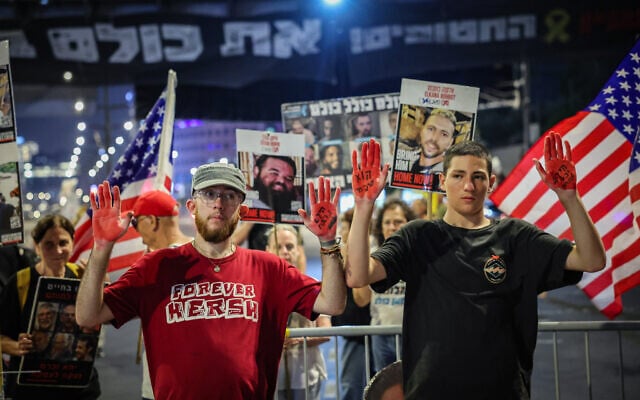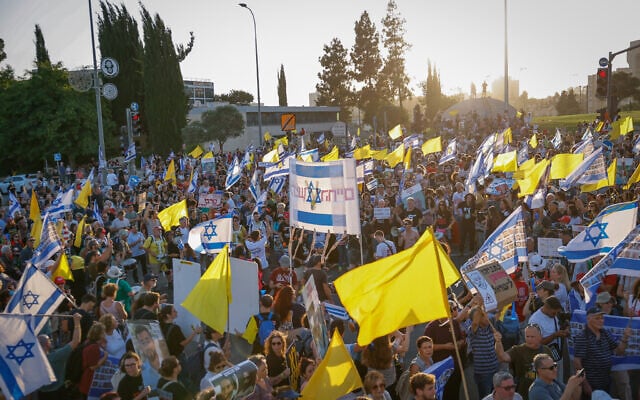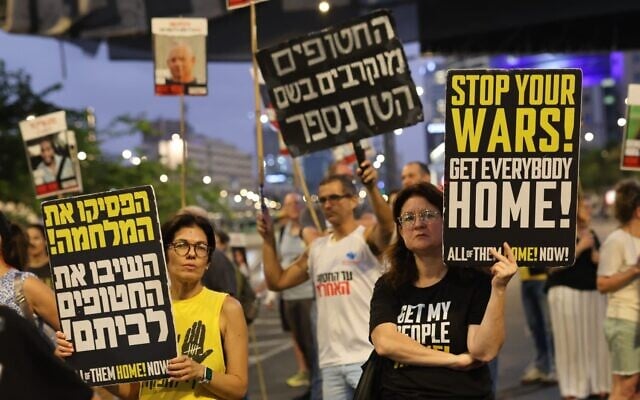



Mossad Director David Barnea was in Doha on Thursday to meet with the Qatari prime minister, in a visit Israeli officials attempted to play down as unrelated to efforts to revive ceasefire and hostage deal negotiations.
Barnea’s visit was organized against the backdrop of Israel’s increasingly vocal opposition to pursuing another partial hostage deal, even as security officials have warned that reaching a comprehensive agreement is highly unlikely at this time.
While two Israeli officials had told Reuters that the purpose of Barnea’s meeting with Prime Minister Mohammed bin Abdulrahman al-Thani was to restart the hostage deal and ceasefire negotiations, another Israeli official was quick to shoot down that idea.
Instead, the senior official said, Barnea was in Qatar “on matters related to the Mossad, and not regarding the negotiations for a hostage deal.”
“Still, the head of the Mossad clarified in the meeting that a partial deal is off the table,” the official said.
According to Channel 12, Barnea conveyed to al-Thani during their meeting that Israel was not bluffing with its plan to conquer Gaza, and intends to do so unless there’s progress in the talks to free the hostages.
Following the breakdown of negotiations for a temporary ceasefire last month, and after Prime Minister Benjamin Netanyahu’s government approved plans to invade Gaza City and widen the military’s grip on the Gaza Strip, Israeli officials have signaled that they are no longer interested in securing a temporary calm and the release of only some of the hostages.
Instead, they have said Israel wants to pursue a comprehensive deal to release the remaining hostages and end the war in Gaza on Jerusalem’s terms — with the demilitarization of the Strip and the installation of a new government that is not connected to Hamas or the Palestinian Authority.
Still, mediator Egypt is trying to bring both Israel and Hamas back to the negotiating table to discuss a temporary truce with room for it to turn into a permanent ceasefire once both sides have agreed on the exact terms.
The framework would likely be similar to the previous one put forward by US special envoy Steve Witkoff, which was at the center of the failed negotiations last month.
“The main objective is to go back to the original proposal — to have a ceasefire for 60 days, with the release of some hostages and some Palestinian detainees, and the flow of humanitarian and medical assistance to Gaza without restrictions, without conditions,” Egyptian Foreign Minister Badr Abdelatty said earlier this week, announcing the plans.
To that end, Saudi news outlet al-Arabiya reported on Thursday that the Hamas delegation currently in Cairo presented Egypt with its demands for a possible ceasefire on Wednesday, including written guarantees from Israel that it would halt any possible designs on taking over Gaza.
But the ceasefire plans presented by Hamas made no mention of releasing the hostages, with the terror group instead saying that it would withdraw its fighters to agreed-upon locations and “affirm its commitment to keep hostages alive,” in exchange for Israel pulling its troops back, al-Arabiya reported, citing unnamed sources.
According to various Hebrew-language reports, Hamas’s decision to dispatch a delegation to Cairo was made not by the terror group’s senior leadership but by Turkey, which has warm ties with the terror group and is home to a number of its exiled senior members.
Citing a source familiar with the matter, the outlet said that Turkey’s Foreign Minister Hakan Fidan met with Hamas officials in Istanbul last week, and told them that they should resume negotiations and aim for a deal to end the war.
Speaking to the Haaretz newspaper, a Palestinian source familiar with the details said that both Turkey and Qatar were pressuring Hamas to resume negotiations in good faith, and informed them that the only way to do so was through disarming and giving up control of the Gaza Strip.
According to the source, the combined efforts of Qatar and Turkey have led the terror group to realize that it no longer has the necessary support to allow it to continue to refuse these demands, Haaretz said.
But despite Egypt’s best efforts, and Hamas’s apparent willingness to negotiate, Israel did not appear to be budging from its stance that the only acceptable deal is a comprehensive one, as a senior Israeli official told Channel 12 Wednesday night, and that Jerusalem was unlikely to return to backing Witkoff’s proposal.
“Israel does not intend to renew talks on a partial deal. The only issue on the table is the release of all 50 hostages with Israel’s conditions for ending the war, including disarming Hamas and demilitarizing Gaza,” the senior official said.
Another senior official was quoted by the news outlet as telling the families of the hostages that the conditions set by Israel’s political leadership for a permanent ceasefire and comprehensive deal were unrealistic.
Furthermore, the official said that Israel’s talk about a comprehensive deal had actually harmed efforts to advance Witkoff’s proposal.
“We were making serious progress toward the Witkoff proposal, but the briefings from the senior officials about a comprehensive deal harmed the talks on the Witkoff proposal,” the official said.
“Now, the conditions that the cabinet decided on for ending the war can not realistically be implemented. Hamas agreed to disarm, but it’s impossible to completely demilitarize Gaza,” he said.
While trying to push through a 60-day ceasefire, Egypt had also proposed a 48-hour humanitarian ceasefire to both Israel and Hamas, al-Araby reported on Thursday without providing any sources. The report said that Israel had rejected the proposed two-day truce and Hamas had agreed.
It said that mediators were continuing to put pressure on Israel to agree.
Hamas took 251 hostages in its October 7, 2023, onslaught that started the war. Of the 50 it is holding now, 49 are from that attack. It is also holding the body of a soldier killed in 2014.
Hamas and Israel have been indirectly negotiating on and off since shortly after October 7. A weeklong ceasefire in November 2023 led to the release of 105 hostages, while 38, mostly living, were released in a ceasefire that lasted from January to March of this year. In exchange, Israel has freed some 2,000 jailed Palestinian terrorists, security prisoners, and Gazan suspects detained during the war.
Agencies contributed to this report.



